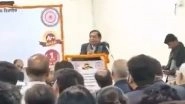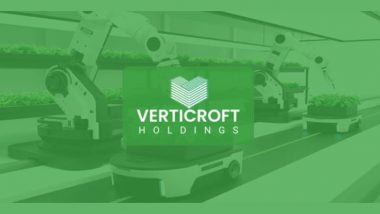What problem initially led to the UAE needing food security? The answer to this is the serious environmental concerns that the UAE faces. Some of the environmental challenges that have caused food insecurity are; scarcity of arable land, global warming & climate changes, an increase in population that drove importation in the UAE to about 90%, and rain scarcity (a dire lack of water). However, in 2019, the UAE made a jump from 31st to 21st position in the Global Food Security Index (GFSI). This index is based on four issues related to food security: Natural resources & Resilience, Quality & Safety, Availability, and Affordability.
What approach has the UAE taken to solve food insecurity issues?
With infrastructure investments, market interventions, and subsidies, the UAE has been able to offset many of its structural challenges. In 2010, the government formed the Food Security Center to develop and implement a food security plan. Because of their similar circumstances, the UAE has implemented many of the same policies and strategies as Singapore but has not had the same level of success. This is primarily due to the extent to which the policies are implemented.
The UAE government has made targeted moves to support high-tech agriculture ever since it became obvious that traditional agriculture could no longer get the job done. Simply think about it; the stakes are definitively higher and the strategies proposed by the government must focus on improving yield and efficiency by using and bringing in new technology in agriculture.
“Our leadership has issued clear and ambitious directives to transform the UAE into a world-leading hub in innovation-driven food security with clearly set targets. These include the National Food Security Strategy goals, which are enabling all citizens and residents to have access to sufficient, safe and nutritious food for an active and healthy life at affordable prices at all times, including emergencies and crises," -Mariam Hareb Almheiri
This is what the Minister of state for food security in UAE, Mariam Hareb Almheiri, had to say with regards to the 10 position leap in 2019. She said this during an interview on the effort of the UAE government towards making the country a leading hub for innovation while promoting food security.
Is vertical farming truly a viable solution to the food scarcity problem in the UAE?
Vertical farming is another alternative for the UAE as it saves water and can be done on both a large scale (urban farms) or on a small level (home farming). Vertical farming, as opposed to typical horizontal farming, involves growing and harvesting crops on vertical shelves or columns. Vertical farmers can produce substantially more food on the same amount of ground. Vertical farming requires temperature, light, and humidity levels to be optimal. This method was somewhat successful in that it resulted in the deployment of certain high-tech agricultural projects. However, none of these are now economically viable nor have they resulted in considerable market deployment. The development and application of these technologies are thought to be limited and are not yet fully viable for the large-scale production required to help food security. This policy successfully leverages the UAE's commercial openness to improve Public-Private Partnerships (PPPs). Meaning that the UAE, with its distinct climate challenges, must engage in technical breakthroughs that precisely meet its special requirements. High prices, insufficient awareness, and a lack of incentives are important barriers to the deployment and development of such technology.
Verticroft Steps in with Vertical Farming Technology
Verticroft designs, develops, and builds IoT-based growing facilities to generate fresh green feed 365 days a year, regardless of the weather and used to rear livestock in the UAE to create a local, sustainable source of protein for a region relying on importing over 80% of all meat consumed. Verticroft is a pioneer for vertically integrated food security in the UAE with a proven track record of producing some of the worlds finest lamb, in a country, most thought was impossible.
“The original system that we use is being used all over the world in America, India, Vietnam, Australia, Spain and now we have brought it to Dubai. The GCC is the only part of planet earth where agriculture makes up such a small part of each individual country’s GDP” - Ryan Singlehurst.
This statement was made by Ryan Singlehurst, CEO of Verticroft holding. According to research, this is very much true. The company operates 550,000 SQFT of feedlot space in the UAE with current farms able to produce upto 40,000 head per annum at full capacity supplying fresh grass fed lamb in the desert by utilising un-arable land and turning it into a net positive production site.













 Quickly
Quickly


